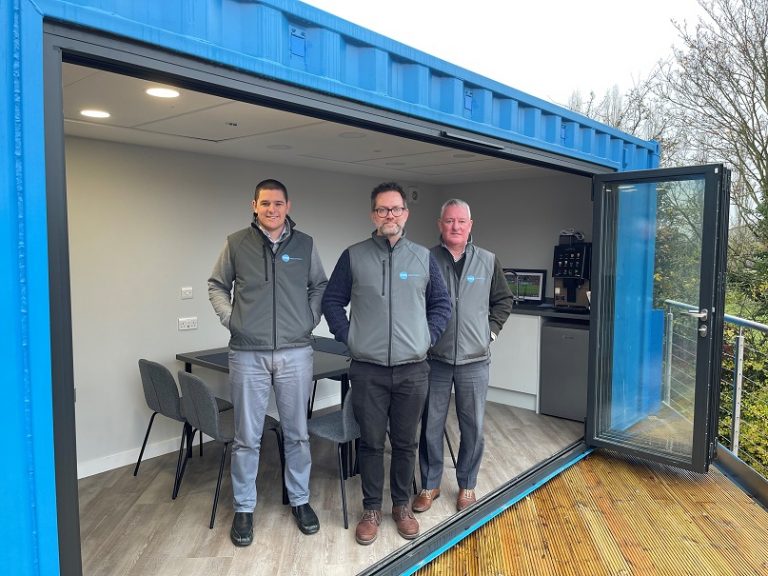A global manufacturer and distributor recently welcomed a government minister to its UK headquarters in Leicestershire for a production and trade focused visit.
Kemi Badenoch MP, Secretary of State for International Trade, visited COBA Group, which specialises in the manufacture of thermoplastic products, at its production facility in Fleckney where more than a million products are manufactured each day.
Ms Badenoch was joined by Neil O’Brien, MP for Harborough, Oadby and Wigston, for the visit, which included a tour of the complex where 266 of COBA Group’s 405 UK employees are based, and a discussion with Mark Cooke, CEO of COBA Group, regarding post-Brexit international trade opportunities.
The MP for Saffron Walden saw COBA Group’s largest subsidiary, COBA Automotive, at close quarters, as the East Midlands-based business looks to diversify its offering, with a number of opportunities currently available to work on a variety of exciting automotive and plastic projects.
As part of the tour, Ms Badenoch was walked through the ‘tie-down’ production area, where a product category of COBA Group’s successful automotive seating portfolio is created.
The International Trade Minister and her team were shown around the whole production facility, where 1000 solar panels have recently been installed on the roof, with the expectation of reducing energy costs and COBA’s carbon footprint.
Ms Badenoch, who is also President of the Board of Trade, visited COBA Group as part of its long-term strategy to expand its operations in international markets and sustain noticeable export growth, with the business now supplying its products to more than 140 clients in 40 countries.
COBA Group’s manufacturing and distributing capabilities are increasing internationally, with COBA Automotive now operating two production plants in Slovakia and Romania.
The business has now been trading for 55 years, and runs 14 production facilities in Europe and Africa. It featured in the London Stock Exchange’s 2020 list of ‘1000 Companies to Inspire Britain’ and is a staple of Leicestershire’s Top 200 Companies.
Mark Cooke, CEO at COBA Group, said: “We were delighted to welcome Kemi Badenoch MP to Fleckney for a tour of our manufacturing facility. International trade is an important part of our business operations, so it was beneficial to share our recent experiences with her and hope they guide her somewhat as she seeks to establish the UK on a sound global trading footing post-Brexit.
“Managing the journey of our products, from their beginnings as individual components to the finished article that end up with our customers, whether that be in the UK or on mainland Europe, Africa or other parts of the world where we operate, is an ongoing challenge. We naturally always want to always improve in this area, so to relay our thoughts to Ms Badenoch and to see her so engaged and interested in supporting our efforts was great.
“Like so many of our counterparts, COBA Group has faced some challenging circumstances in recent times, but it was refreshing to have some really positive discussions about COBA Group’s importance within the East Midlands business community and beyond as a global manufacturer.
“We were pleased to be able to talk to Ms Badenoch about maximising COBA Group’s domestic trade opportunities, and to learn about her ongoing commitment to the UK plastering and automotive sectors.
“It was a privilege to welcome her to our Fleckney base, and post-visit, we’re excited to continue moving the business forward and keep ensuring that we’re going above and beyond for our clients by working smartly, providing a high-quality service at the best value possible, and exceeding their expectations.”












